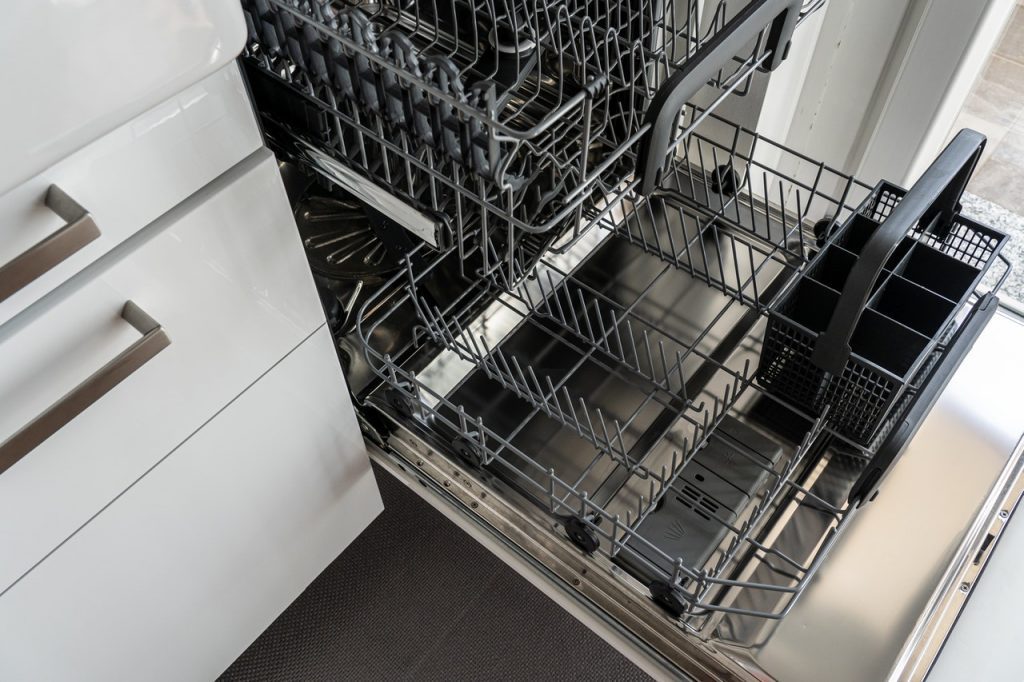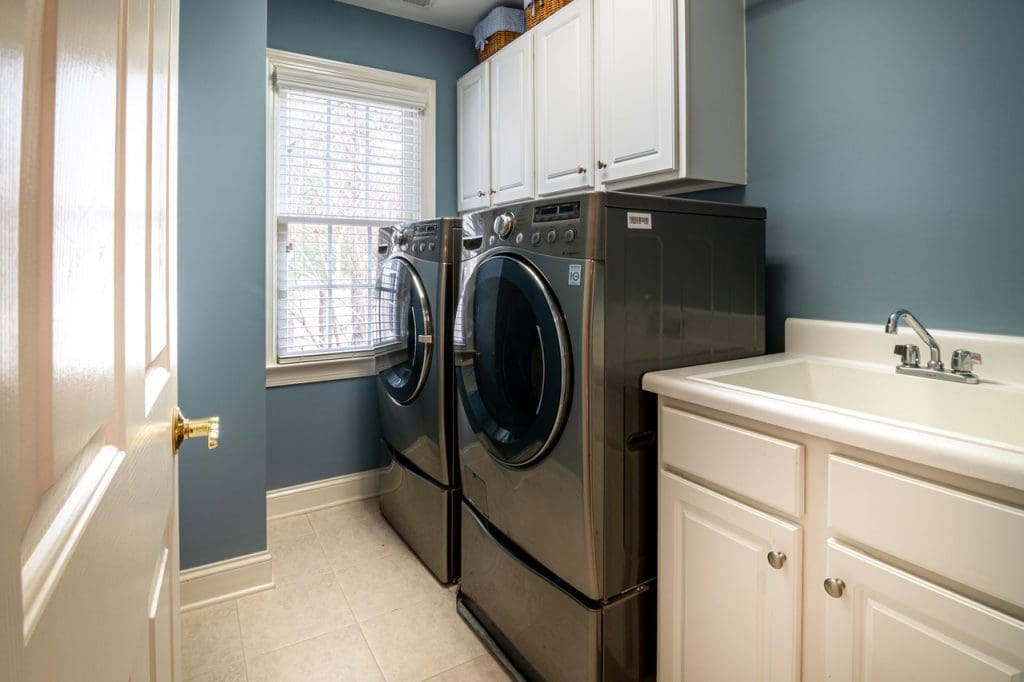You know you’re an adult when buying new home appliances excites you more than anything else. But all that excitement vanishes into thin air when an appliance stops working sooner than you expected. After all, the salesman did assure you that it will last for years.
So, what do you do?
Sure, you can march over to the store and claim your warranty. But the problem is rarely with the appliance itself. So you’re not really solving the issue. Instead, McCaw Property Management says, the lifespan of your appliance depends on how you use it. So, this time around, you’ll have to make a few changes to your habits.
What are those changes, you ask? Let’s take a look.
Table of Contents
How to Extend the Lifespan of Common Home Appliances
Instead of discussing some general pointers, let’s talk specifics. Here is how you can extend the lifespan of some of the most common household appliances.
Refrigerator and Freezer
Honestly, what would we even do without our trusted fridges and freezers? Luckily, you won’t have to find out if you abide by the following rules:
- Regularly clean the gasket. The gasket is a rubber seal that wraps around the edges of your fridge door and keeps all the cool air inside. Once a week, wipe the gasket down with a wet cloth and glaze it lightly with vaseline.
- If you have to pull extra hard to open your refrigerator door, the gasket is too sticky and grimy. Give the gasket an extra good washing if this happens.
- Always close your fridge doors gently to maintain the gasket’s elasticity and structural integrity.
- Clean the condenser coils at least twice a year with a handheld vacuum. The condenser coils are responsible for cooling the refrigerant. If they are not clean, your fridge can overheat and malfunction.
Dishwasher
Dishwashers last for about ten years on average. But if you suspect that yours isn’t living up to its full cleaning potential, try the following tips:
- Always remove food from your plates before loading your dishwasher. Food buildup can damage the water pump and the spray arms.
- Pre-rinse your dishes to prevent gunk buildup over time. While it may seem counterintuitive at first, pre-rinsing your dishes ensures that there are no food grains or puddles of oil on the plate.
- Use powder detergents instead of liquid or gel soaps. Moreover, never use regular liquid dish soap in your dishwasher since it can create excessive suds, which you will have to clean.
- Run hot water before starting the cycle. While some dishwashers have built-in water heaters, you need to be certain that your cycle runs on hot water. Hot water leads to a shorter wash cycle and a longer dishwasher lifespan by extension.
- Never overload your dishwasher.
- Once a month, run an empty dishwasher with synthetic white vinegar. The vinegar helps cleaning out old food particles.

Microwave
Yes, yes, we all know the basics of microwave rules: never use metal dishware and always cover your liquids. But the following tips for microwave maintenance aren’t common knowledge:
- Prevent door damage. Your microwave is only as good as its door, and you’re not doing it any favors by slamming the door shut.
- Moreover, never open the microwave door with the oven still on. The complex system of latches and microswitches of the door must resort to a fail-safe method of cutting power. This can damage the microswitches over time.
- Unplug your microwave when you’re not using it. By unplugging your microwave, you protect it from unexpected but inevitable power surges.
Oven and Stovetop
Your stovetop is the heart and soul of your kitchen. Beyond just giving you sustenance, a well-maintained stovetop will also prolong the lifespan of your pans and pots. Here is how you can make sure your stovetop lives a full life:
- Clean your stovetop daily to prevent grime buildup. However, do not use chemical cleaners daily. Instead, try to sponge up spillage as soon as it happens.
- Regularly clean the gasket. Just like your refrigerator, your oven also has a rubber seal— this time to keep the heat in. Wipe down the gasket with a wet sponge at least once a week.
Washing Machine
If you want to extend the lifespan of your washer, you’ll need to change your laundry habits. Here’s how:

- Don’t overload your washing machine. Remember: the instructions are there for a reason. Your best bet is to follow the guidelines for the recommended load size strictly.
- Make sure your washing machine is balanced. If your ground is level, then this shouldn’t be a problem. Otherwise, you can stick small pieces of cardboard or plastic under the machine’s legs to balance it out.
- Never use more than the recommended amount of laundry detergent. Excessive detergent, fabric softeners, or any other fabric cleaning chemicals can leave behind stains and residue.
How to Extend the Lifespan of All Appliances
Tending to individual appliances is necessary but tedious. Luckily, you can take a few steps that will benefit all of your household appliances at once.
Use a Water Softener
The most effective way to prolong the lifespan of all your household appliances and hardware is by addressing the source of the problem: hard water.
Most household appliances rely on water to function. Even appliances that don’t directly use water, like your fridge or the oven, need water for cleansing.
Hence, the type of water you use can make or break your appliances (literally!).
So if you notice that your electric kettle has a white residue or your washing machine is eating up copious amounts of detergent, the problem might be with your water.
The thing is, the water flowing through your plumbing system is not just pure water. Instead, it has a certain amount of natural minerals and other dissolved compounds. While these compounds are not always harmful to you, they can heavily damage your metal appliances.
So, what’s the solution? It’s easy: use a water softener.
As the name suggests, water softeners “soften” otherwise hard water by removing minerals such as magnesium and calcium— the most common culprits for the short lifespan of your appliances.
By using the best water softeners, you can ensure that hard water doesn’t defile your household appliances.
Fix the Minor Issues
So what if your dryer only works in 30-second intervals or your microwave starts beeping prematurely. At least everything still works, right?
Wrong!
What may seem like minor inconveniences can actually snowball over time and destroy your appliances. Before you know it, you’ll be caught in an avalanche of dirty laundry simply because you didn’t fix the small problems.
So, always make sure to fix even the most minor issues as soon as they spring up.
Replace the Filters
Whether it’s a vacuum cleaner or a washing machine, all appliances come with some filtering mechanism.
The key is to keep these filters clean.
If you don’t regularly clean your filters, your appliances can choke up, overheat, and eventually stop working altogether.
Small Habits – Big Difference
When it comes to your household appliances, the smallest habits can make the biggest difference.
If you want to prolong the lifespan of your household appliances, you’ll have to start taking better care of them. Hopefully, this article has helped you understand how to do just that.
Featured Photo by Sidekix Media on Unsplash




